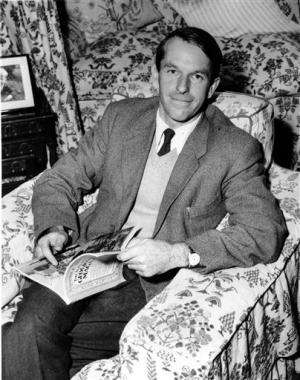Frederick Sanger, double Nobel winner, dies at 95

British biochemist Frederick Sanger, who twice won the Nobel Prize in chemistry and was a pioneer of genome sequencing, has died at the age of 95.
His death was confirmed Wednesday by the MRC Laboratory of Molecular Biology—which Sanger helped found in 1962.
The laboratory praised Sanger, who died in his sleep Tuesday at Addenbrooke's Hospital in Cambridge, as an "extremely modest and self-effacing man whose contributions have made an extraordinary impact on molecular biology."
Sanger was one of just four individuals to have been awarded two Nobel Prizes; the others being Marie Curie, Linus Pauling and John Bardeen.
Jeremy Farrar, director of the Wellcome Trust, called Sanger "the father of the genomic era."
Sanger first won the Nobel Prize in 1958 at the age of 40 for his work on the structure of proteins. He had determined the sequence of the amino acids in insulin and showed how they are linked together.
He later turned his attention to the sequencing of nucleic acids and developing techniques to determine the exact sequence of the building blocks in DNA.
That work led to Sanger's second Nobel Prize, awarded jointly in 1980 with Stanford University's Paul Berg and Harvard University's Walter Gilbert, for their work determining base sequences in nucleic acids.
Venki Ramakrishnan, deputy director of the MRC Laboratory, said it would be "impossible to overestimate the impact" Sanger had on modern genetics and molecular biology.
Sanger was born on Aug. 13, 1918, in Gloucestershire, southwestern England. While he initially planned to study medicine like his father, he switched fields and earned a degree in natural sciences from Cambridge University 1939. A conscientious objector in World War II, he went on to earn a PhD working on protein metabolism from the same university.
In addition to the Nobel Prizes, Sanger was made a fellow of the Royal Society in 1954, Commander of the Order of the British Empire in 1963 and the Order of Merit in 1986.
Sanger declined a knighthood, however, because he preferred not to be called "sir," according to the laboratory he helped found.
According to The Sanger Institute, when he was asked if he would mind an institute being named after him, Sanger agreed—but said "It had better be good."
Sanger is survived by three children—Robin, Peter and Sally.
© 2013 The Associated Press. All rights reserved.

















